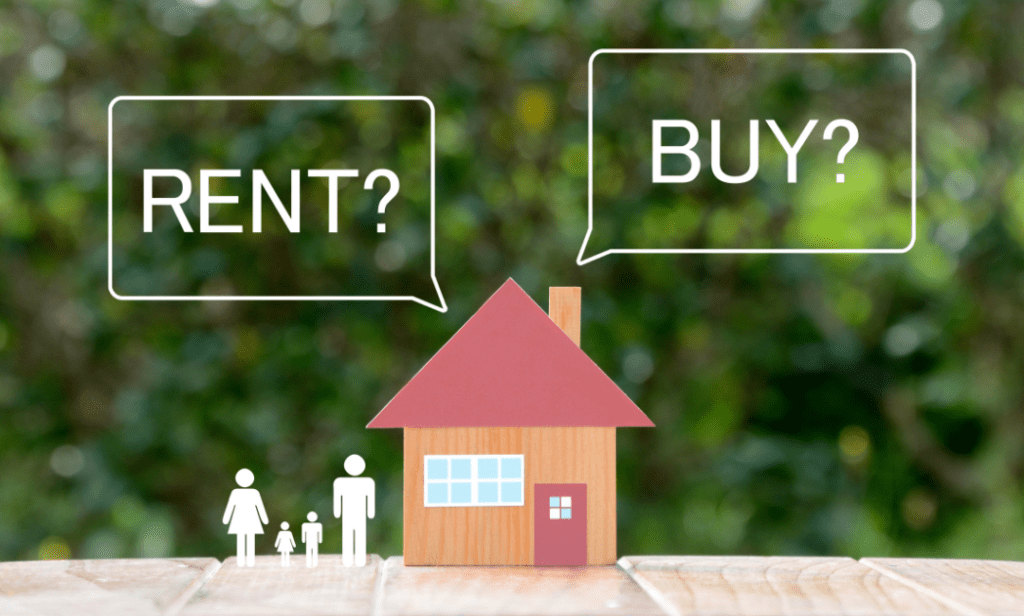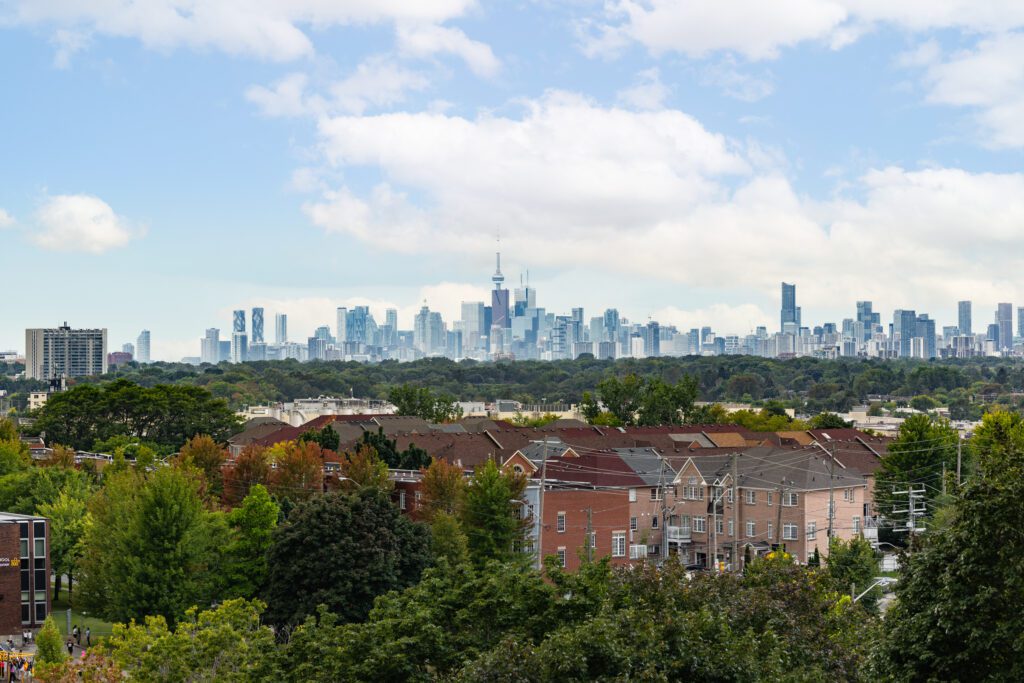The Pros and Cons of Buying vs. Renting a Home in Toronto: Which is Right for You?
03/11/24

Are you torn between buying or renting a home in Toronto? This decision can have a significant impact on your finances and lifestyle. In this article, we will explore the pros and cons of each option, helping you make the right choice for your unique circumstances.
There are several advantages to buying a home in Toronto. First, you are investing in an asset that can appreciate over time. Second, you have the freedom to modify and personalize your space as you wish. Additionally, owning a home provides a sense of stability and security.
However, buying a home also comes with its share of cons. It requires a significant upfront investment, with expenses like down payments, closing costs, and maintenance fees. Owning a home also means taking on the responsibility of repairs and maintenance, which can be expensive and time-consuming.
On the other hand, renting offers more flexibility, requires fewer upfront costs, and relieves you of the burden of maintenance. However, you may face rental increases, limited control over the property, and the inability to build equity.
Ultimately, the decision between buying and renting a home in Toronto depends on your financial situation, long-term goals, and personal preferences. Consider these pros and cons carefully before making your choice.
- Pros And Cons of Buying a Home in Toronto
- Pros and Cons of Renting a Home in Toronto
- Financial Considerations: Costs of Buying vs. Renting in Toronto
- Lifestyle Factors: Flexibility and Stability in Buying vs. Renting
- Market Trends: Toronto Real Estate Market Analysis
- Making the Decision: Factors to Consider in Choosing between Buying and Renting
- Finding the Right Home Ownership Option in Toronto
- Frequently Asked Questions About Buying vs. Renting a Home in Toronto
Pros And Cons of Buying a Home in Toronto

Pro: Appreciation of Value
One of the major advantages of buying a home in Toronto is the potential for appreciation in value over time. Toronto’s real estate market has historically shown steady growth, making it a desirable investment. By purchasing a property, you have the opportunity to build equity and potentially earn a profit when you decide to sell. This can be particularly beneficial if you plan to stay in the same location for an extended period. The Smith Proulx Team can add insights on how specific neighbourhoods like The Junction or Bloor West Village have shown remarkable growth,
Pro: Personalization and Freedom
When you own a home, you have the freedom to modify and personalize your space as you wish. Whether it’s painting the walls, renovating the kitchen, or creating a beautiful garden, you have full control over the aesthetics and functionality of your home. This level of customization can contribute to a sense of pride and satisfaction, as you create a living space that truly reflects your personal style and preferences.
Pro: Stability and Security
Owning a home provides a sense of stability and security. Unlike renting, where you may be subject to periodic rent increases or the possibility of having to move at the end of a lease, home ownership offers a more permanent living situation. You have the peace of mind that comes with knowing you have a stable place to call home. Additionally, owning a property can act as a form of security, as you can use it as collateral for loans or leverage for future investments.
Con: Upfront Investment
One of the primary cons of buying a home in Toronto is the significant upfront investment required. Along with the down payment, which is typically 5-20% of the purchase price, there are additional expenses such as closing costs, land transfer taxes, and legal fees. These costs can add up quickly and may pose a challenge for first-time buyers or those with limited savings. It’s essential to carefully consider your financial situation and ensure you have enough funds to cover these expenses before committing to home ownership.
Con: Maintenance and Repairs
Owning a home comes with the responsibility of repairs and maintenance, which can be both costly and time-consuming. Unlike renting, where the landlord is responsible for these tasks, homeowners need to allocate time and resources to keep their property in good condition. From fixing leaky roofs to replacing appliances, these expenses can quickly accumulate. It’s important to budget for ongoing maintenance costs and have a contingency plan in place for unexpected repairs.
Con: Lack of Flexibility
Buying a home in Toronto can limit your flexibility, especially if you anticipate the need to relocate in the near future. Selling a property can take time, and the real estate market may fluctuate, impacting the potential sale price. If you foresee the possibility of a job change or a desire to explore different neighbourhoods, renting may offer more flexibility and the ability to move more easily without the commitment of selling a property.
Pros and Cons of Renting a Home in Toronto

Pro: Flexibility and Mobility
Renting offers more flexibility and mobility compared to buying a home. Leases typically have shorter terms, allowing you to easily move to a different location, neighbourhood, or even city if your circumstances change. This can be particularly advantageous for individuals who prefer a nomadic lifestyle or those who frequently relocate for work or personal reasons. Renting also allows you to test out different neighbourhoods or living arrangements before committing to a long-term purchase.
Pro: Lower Upfront Costs
One of the significant advantages of renting a home in Toronto is the lower upfront costs compared to buying. While renters typically need to provide a security deposit, it is significantly less than the down payment required for purchasing a property. This makes renting more accessible for individuals who do not have substantial savings or are not yet ready to commit to home ownership. Renting also eliminates the need for additional expenses such as closing costs, land transfer taxes, and legal fees.
Pro: Maintenance and Repairs
A significant advantage of renting is that you are not responsible for the costs or burden of repairs and maintenance. If something breaks or needs fixing, you can contact your landlord or property management company, who will handle the necessary repairs. This can save you both time and money, as home maintenance costs can be substantial. Renting allows you to focus on enjoying your living space without the added stress of managing repairs.
Con: Limited Control over Property
When you rent a home in Toronto, you have limited control over the property. You may not be able to make significant modifications or personalize the space to the same extent as you would if you owned the property. This lack of control can be frustrating for individuals who have specific design preferences or enjoy the freedom to renovate and modify their living space. Renting may not offer the same level of creative expression as home ownership.
Con: Rental Increases
In Toronto, renters are subject to specific challenges regarding rental fee increases as per provincial regulations. For 2024, the law caps the maximum allowable rent increase at 2.5%, which is the same as the previous year. This rule requires landlords to give a minimum of 90 days’ written notice for rent increases, which are only allowed once every 12 months. However, this cap does not apply to certain types of properties, such as new buildings or major additions first occupied after November 15, 2018. In these cases, landlords can raise rents without being bound by these restrictions, potentially leading to significant and unpredictable increases for tenants in these exempted properties.
Despite the measures in place to regulate rent increases, tenants in Toronto still face the ongoing financial burden of annual rent hikes, a notable concern in a city with high living costs. The complexity of laws surrounding rent control and tenant rights can add to these challenges, especially for those who are not well-versed in legal matters or lack the resources to seek assistance. This highlights the importance for tenants to understand their rights and, if necessary, to obtain legal help to navigate these issues effectively.
Con: Inability to Build Equity
One of the significant drawbacks of renting is the inability to build equity. Unlike homeowners who accumulate equity as they pay down their mortgage, renters do not have the opportunity to benefit from the appreciation of the property value. Rent payments go towards the landlord’s mortgage and expenses rather than towards building personal wealth. For individuals looking to establish long-term financial stability and potentially generate wealth through real estate, renting may not be the ideal option.
Financial Considerations: Costs of Buying vs. Renting in Toronto

When deciding between buying and renting a home in Toronto, it’s crucial to consider the financial implications of each option. Buying a home requires a significant upfront investment, including the down payment, closing costs, and additional fees. However, home ownership offers the potential for appreciation in value and the ability to build equity.
Renting, on the other hand, has lower upfront costs and eliminates the need for additional expenses such as closing costs and legal fees. However, rental payments do not contribute to building equity, and you may face rental increases over time.
It’s essential to evaluate your financial situation, long-term goals, and the current state of the Toronto real estate market before making a decision. Consider factors such as your income stability, creditworthiness, and the availability of favourable mortgage rates. Additionally, consult with a financial advisor or mortgage specialist to determine what option aligns with your financial objectives.
Lifestyle Factors: Flexibility and Stability in Buying vs. Renting

Aside from financial considerations, lifestyle factors also play a crucial role in the decision between buying and renting a home in Toronto. The choice between flexibility and stability can significantly impact your day-to-day life.
Buying a home provides stability and a sense of permanence. It allows you to establish roots in a community, build relationships with neighbours, and create a long-term living arrangement. Homeownership can provide a sense of pride and satisfaction, as you have complete control over your living space.
On the other hand, renting offers more flexibility and mobility. If you value the ability to easily move to different neighbourhoods or cities, renting can provide the freedom to explore new opportunities without the commitment of selling a property. Renting can be particularly advantageous for individuals who have career aspirations that may require relocation or those who prefer a more transient lifestyle.
Consider your long-term goals, career plans, and personal preferences when assessing whether stability or flexibility is more important to you. Additionally, evaluate the current stage of your life and anticipate any potential changes that may influence your housing needs in the future.
Market Trends: Toronto Real Estate Market Analysis
To make an informed decision about buying or renting a home in Toronto, it’s essential to be aware of the current state of the real estate market. Market trends can significantly impact the affordability, availability, and potential return on investment of properties in the city.
Research the average home prices, rental rates, and vacancy rates in different neighbourhoods to gain insight into the market conditions. Determine whether the market is favouring buyers or renters, as this can influence the negotiation power and the potential for future appreciation.
Additionally, consider the economic outlook and any factors that may impact the real estate market, such as changes in interest rates, government policies, or demographic shifts. Staying informed about the market trends will allow you to make a more educated decision and potentially capitalize on favourable conditions.
Making the Decision: Factors to Consider in Choosing between Buying and Renting

When deciding between buying and renting a home in Toronto, it’s essential to consider a variety of factors that are specific to your circumstances. While there are pros and cons to both options, the decision ultimately depends on your financial situation, long-term goals, and personal preferences.
Evaluate your financial stability and the ability to cover the upfront costs of buying a home. Consider your long-term goals and whether home ownership aligns with your desire to build equity and establish stability. Assess the market conditions and the potential return on investment for properties in the areas you are interested in.
Take into account your lifestyle preferences, such as the desire for flexibility or stability, and how each option aligns with your current stage of life. Determine whether you have the time, resources, and inclination to handle the responsibilities of home ownership, including repairs and maintenance.
Seek guidance from specialists like the Smith Proulx Team, as well as trusted mortgage experts and financial advisors, for advice and insights tailored to your circumstances. With their deep understanding of the west end of Toronto’s real estate market, including High Park and Bloor West Village, they can offer invaluable expertise to help you navigate your property journey with confidence, ensuring decisions are aligned with your unique needs and goals.
Finding the Right Home Ownership Option in Toronto

The choice between buying and renting a home in Toronto is a significant decision that should be carefully considered. Each option comes with its own set of pros and cons, impacting your financial situation, lifestyle, and long-term goals.
Buying a home offers the potential for appreciation in value, freedom to personalize, and stability. However, it requires a significant upfront investment and the responsibility for repairs and maintenance.
Renting provides flexibility, lower upfront costs, and relief from maintenance responsibilities. However, it may limit your control over the property, expose you to rental increases, and prevent you from building equity.
To make the right decision, evaluate your financial situation, long-term goals, and personal preferences. Consider the costs, market trends, and lifestyle factors associated with buying and renting. Seek professional advice and guidance to ensure you are well-informed and confident in your choice.
Whether you choose to buy or rent, remember that your home should be a place where you feel comfortable, happy, and secure.
Frequently Asked Questions About Buying vs. Renting a Home in Toronto
What are the advantages of buying a home in Toronto?
Buying a home in Toronto offers several advantages, including potential appreciation of value over time, the freedom to personalize and modify your space, and a sense of stability and security.
What are the drawbacks of buying a home in Toronto?
Some drawbacks of buying a home in Toronto include the significant upfront investment required, ongoing maintenance and repair responsibilities, and potentially limited flexibility, especially if relocation is anticipated.
What are the benefits of renting a home in Toronto?
Renting a home in Toronto provides flexibility and mobility, lower upfront costs compared to buying, and relief from maintenance responsibilities.
What are the downsides of renting a home in Toronto?
Downsides of renting in Toronto include limited control over the property, potential rental increases, and the inability to build equity.
How does buying a home in Toronto contribute to financial stability?
Buying a home in Toronto can contribute to financial stability by potentially building equity over time and providing a stable living situation without the uncertainty of rental increases.
What factors should I consider when deciding between buying and renting in Toronto?
Factors to consider include your financial situation, long-term goals, lifestyle preferences, market trends, and the responsibilities associated with homeownership versus renting.
How can I navigate the Toronto real estate market effectively?
To navigate the Toronto real estate market effectively, research average home prices, rental rates, vacancy rates, and consider seeking guidance from real estate professionals like the Smith Proulx Team.
What are the financial considerations when buying or renting in Toronto?
Financial considerations include upfront costs, ongoing expenses, potential for building equity, and the current state of the real estate market.
How can I ensure I’m making the right decision for my housing needs in Toronto?
To ensure you’re making the right decision, evaluate your financial stability, long-term goals, lifestyle preferences, and seek guidance from experts in the Toronto real estate market.
How can I find the right home ownership option in Toronto?
Finding the right home ownership option involves evaluating your needs, preferences, and financial situation, as well as seeking guidance from experienced real estate professionals who understand the Toronto market.
Considering your options?
Need some help to decide whether you should rent or buy your next home in Toronto? Let's chat about your options!



